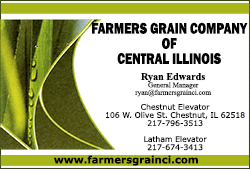|
 Trade
group sues TV's Dr. Oz over his claims of fake olive oil Trade
group sues TV's Dr. Oz over his claims of fake olive oil
 Send a link to a friend
Send a link to a friend
[November 30, 2016]
By Sarah N. Lynch
WASHINGTON (Reuters) - A trade group
representing olive oil importers sued television personality Dr. Mehmet
Oz on Tuesday under a largely untested Georgia food libel law, objecting
to his claims that much of the imported extra virgin olive oil sold in
U.S. supermarkets may be fake.
|
|
 The New Jersey-based North American Olive Oil Association filed the
lawsuit in state court in Fulton County, Georgia, seeking an
unspecified amount in damages and payment for the group's legal
fees. Some members of the trade group conduct business in Georgia. The New Jersey-based North American Olive Oil Association filed the
lawsuit in state court in Fulton County, Georgia, seeking an
unspecified amount in damages and payment for the group's legal
fees. Some members of the trade group conduct business in Georgia.
The suit said Oz, host of a popular daytime TV talk show devoted to
health issues, violated the Georgia law when he stated that 80
percent of the extra virgin oil sold in supermarkets "isn't the real
deal" and "may even be fake," claims the organization called untrue.
Georgia is among 13 U.S. states that have food libel laws that
generally have a lower legal burden than traditional libel laws.
These laws make it easier for food companies to sue people who make
disparaging remarks about their products.

The heart of the group's complaints against Oz, Entertainment Media
Ventures Inc and ZoCo Productions LLC, the business entities that
promote and produce "The Doctor Oz Show," center on a May 12 episode
entitled "Food Truth: What's Really in Your Pancake Syrup."
During that show, Oz featured guest Maia Hirschbein, who was
introduced as a "certified oleologist." The two discussed their
concerns about the adulteration of imported olive oil.
Oz also said on the show that Italy seized 7,000 tons of "fraudulent
olive oil" bound for the United States.
The lawsuit alleges that Oz failed to disclose that Hirschbein is
employed by the California Olive Ranch, a private company that
competes with foreign olive oil manufacturers.
The suit states that none of the seized oil was found to have come
from non-olive sources, and that the North American Olive Oil
Association's own testing from 2013 to 2015 found that 95 percent of
the samples of imported oil met or exceeded quality and purity
standards.
Lawyers for Oz did not immediately comment on the lawsuit.
[to top of second column] |

An attorney for the association declined to comment beyond the
allegations in the lawsuit.
Oz previously has been criticized for comments made on his show.
Democratic U.S. Senator Claire McCaskill of Missouri in 2014 sharply
questioned Oz's promotion of a dietary supplement made from coffee
bean extract that he claimed could help people lose weight without
eating less or exercising more.
The Federal Trade Commission later ordered the maker of the
supplement to pay $3.5 million to settle charges that it made
baseless weight-loss claims and paid researchers who conducted
flawed studies that seemed to support the supplement's efficacy.
The FTC did not charge Dr. Oz or his show, but the complaint noted
that his show touted the supplement.
(Reporting by Sarah N. Lynch; Editing by Will Dunham)
[© 2016 Thomson Reuters. All rights
reserved.] Copyright 2016 Reuters. All rights reserved. This material may not be published,
broadcast, rewritten or redistributed.
 |